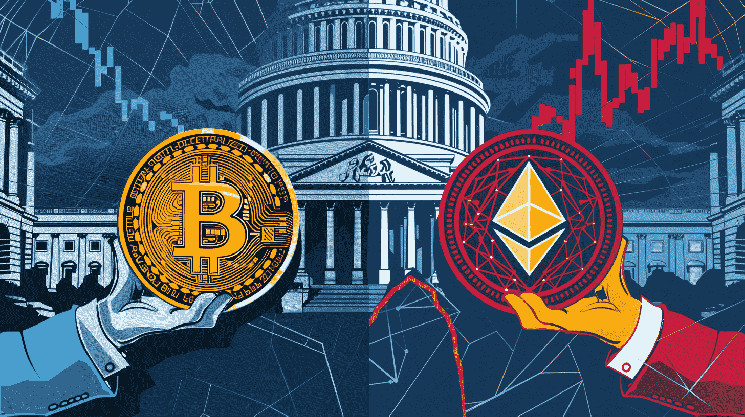On July 9, Commodity Futures Trading Commission (CFTC) Chair Rostin Behnam testified before the US Senate Committee on Agriculture, Nutrition, and Forestry. Behnam highlighted a recent Illinois court ruling that reaffirms Bitcoin and Ethereum as commodities under the Commodity Exchange Act.
Today, I testified on digital commodity assets in front of the Senate Agriculture Committee. Read my remarks at https://t.co/JojHNdQoVh
— Rostin Behnam (@CFTCbehnam) July 10, 2024
The court ruling, issued on July 3, was part of a $120 million Ponzi case involving an Oregon man accused of fraud. The judge in the Illinois district court explicitly stated that both Bitcoin and Ethereum qualify as commodities.
This ruling strengthens the position that these major cryptocurrencies fall under the CFTC’s jurisdiction rather than the Securities and Exchange Commission (SEC).
Behnam's testimony came amid ongoing debates about the regulatory classification of cryptocurrencies. He argued that 70-80% of the crypto market comprises non-securities. This statement addresses the persistent question of whether various cryptocurrencies, including Bitcoin and Ethereum, should be classified as securities or commodities.
Regulatory Turf War
The hearing also touched on the regulatory turf war between the SEC and the CFTC. Senator Roger Marshall questioned whether it would be simpler to place the entire crypto market under the CFTC's jurisdiction.
Behnam responded by emphasizing the need for Congress to act swiftly to fill the regulatory gap. He stressed that proper legislation is essential to provide basic customer protections inherent to U.S. financial markets.
Behnam stressed that the CFTC's current powers are too reactive and inadequate for preventing bad behavior in the crypto industry. He advocated for comprehensive legislation to prevent fraud before it occurs and reduce the reliance on enforcement actions.
Behnam urged Congress to define clearly how the CFTC and SEC should determine what constitutes a digital commodity versus a security. He expressed frustration over Congress' inaction, noting that the lack of clear guidelines hinders effective regulation.
Senator John Boozman, the panel's ranking Republican, cautioned against extending the committee’s reach beyond the CFTC's jurisdiction into other regulatory bodies like the SEC, Treasury Department, and Federal Reserve. Boozman suggested that comprehensive legislation should prevent fraud proactively rather than relying solely on enforcement actions after the fact.
Worth noting, in a discussion at the Milken Institute’s Global Conference in Los Angeles last May, Behnam predicted another cycle of enforcement actions within the next six to 24 months. He warned that without action from Congress and increased regulatory transparency, regulatory agencies would continue to depend heavily on lawsuits to address issues in the crypto market.
 bsc.news
bsc.news
